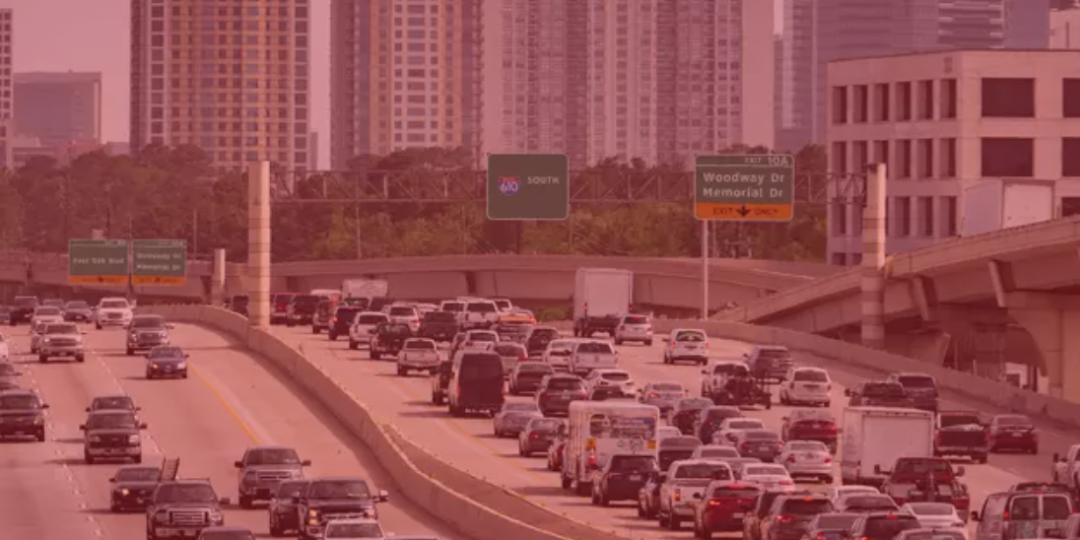Houston, long known for its sprawling highways and car-centric infrastructure, has once again earned the unfortunate distinction of being home to some of the most congested roads in Texas. A recent report from the Texas Department of Transportation (TxDOT) and Texas A&M’s Transportation Institute highlights the magnitude of the issue. With five of the top 10 most congested roads in the state and a staggering 33 out of the top 100, Houstonians are losing significant amounts of time and money sitting in traffic.
The Worst Offender: West Loop (I-610)
The report singles out the West Loop between I-10 and I-69 in the Galleria/Uptown area as the most congested stretch of road in all of Texas. Despite spanning only 3.6 miles, it costs drivers and the economy an annual congestion cost (ACC) of $125,922,628.
To put this into perspective, the annual congestion cost refers to the cumulative economic impact caused by wasted time, additional fuel consumption, and even environmental effects. In terms of time, this 3.6-mile stretch delays drivers by a staggering 1,370,786 hours annually. Such inefficiencies highlight just how severe Houston’s traffic challenges have become.
Other Major Bottlenecks in Houston
Houston’s dominance on the list of congested roadways doesn’t end with the West Loop. Other significant problem areas include:
- Eastex Freeway/I-69/US 59 (from SH-288 to I-10): This stretch ranks as the second most congested roadway in the city, costing drivers $70,632,256 annually with 867,093 hours lost in traffic.
- Southwest Freeway/I-69 (from I-610 to SH-288): Ranking sixth overall, it contributes to an annual congestion cost of $115,263,293 and 821,013 lost hours.
Collectively, these bottlenecks represent a significant burden on Houston drivers, affecting both quality of life and economic productivity.
The Real Cost of Traffic Congestion
The data paints a stark picture of just how much Houston traffic is costing individuals and businesses. Delays in commuting translate to missed opportunities, increased fuel expenses, and environmental harm. For businesses, delivery delays and inefficient logistics contribute to higher costs, which are often passed on to consumers.
For Houston residents, the time lost in traffic means less time spent with family, reduced opportunities for personal development, and increased stress. These intangible costs can be just as damaging as the measurable economic impact.
Proposed Solutions: Expansion vs. Alternatives
The state’s response to Houston’s traffic issues has primarily focused on freeway expansions. A notable example is the upcoming $13 billion I-45 expansion project, set to begin in 2025. However, history has shown that expansion does not always provide long-term relief. The Katy Freeway, now boasting a record-setting 26 lanes, remains a heavily congested corridor.
Experts argue that alternative solutions, such as improved public transportation, more bike-friendly infrastructure, and reduced dependency on cars, could offer a more sustainable answer to Houston’s traffic woes. Until such measures are prioritized, Houstonians may continue to face growing congestion as the city’s population expands.
How Ben Bronston & Associates Can Help
At Ben Bronston & Associates, we understand how Houston’s congested roadways contribute to an increase in car accidents, injuries, and insurance claims. If you or a loved one has been injured due to a traffic-related incident, our experienced legal team is here to help. From navigating complex claims to ensuring you receive the compensation you deserve, we are committed to standing by your side.
Don’t let traffic congestion take more from you than it already has. Contact Ben Bronston & Associates today to schedule a consultation and get the legal assistance you need.
Call 713.CALL.BEN ( 713-225-5236 ) or email us for a FREE and CONFIDENTIAL consultation.
[Disclaimer: This blog post is for informational purposes only and does not constitute legal advice.]










